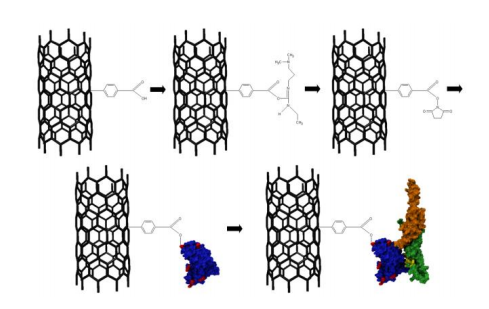- Buyers Circle Around Ailing Fisker Automotive
- Carbon Nanotube Transistors Orders of Magnitude Better At Spotting Cancer, Say Bioengineers
- Exposé of Chinese Data Thieves Reveals Sloppy Tactics
A report on the Chinese group that breached the computers of U.S. companies reveals that they took few precautions against detection.
A beige office block in Shanghai’s suburbs belonging to the Chinese army became world famous on Tuesday after Mandiant, a Washington-based computer security company, released a 60-page report alleging that it houses a group routinely stealing information from U.S. companies. While there’s no direct proof that the Chinese army sponsors the campaign, one thing the report makes clear is that the people carrying it out weren’t the slickest of operators.
- Software with an Eye for Starbucks (and Nike and Coke …)
Startup gazeMetrix uses computer vision to glean information from Instagram photos. It may be the future of marketing.
Among the 40 million images that people post to Instagram each day are a slew of sunsets, puppies, and—according to Deobrat Singh—Starbucks coffee cups. He would know: he counts them.
- Tesla's Explosive Revenue Suggests a Bright Future
The maker of the Model S is cranking out cars and may be on track to turn a profit.
Last year Tesla Motors struggled to meet manufacturing targets for its only production car, the Model S, and it recently got hit with a negative review in the New York Times after a journalist ran out of power during a test drive (see “Tesla Blames New Delays on Production Difficulties” and “Musk-New York Times Debate Highlights Electric Cars’ Shortcomings”).
- Tracking Brain Connections in Utero
Researchers use fMRI to detect strengthening brain circuits.
Researchers have mapped how neuronal connections develop in the healthy human fetus. Their results were published online on Wednesday in Science Translational Medicine.
- We Still Don’t Know What Google Glass Will Be Like to Use
New video and images from Google still don’t reveal what its wearable display will show the user.
Google’s new website showing off Glass—eyeglass frames that insert a display into your peripheral vision—goes some way to explain what the company is planning for the gadget, such as directions and voice control. But the company still hasn’t given us a good sense of what the device will really be like to wear, and is even slightly misleading about it.
- The Future Shopping Mall of Tech Companies
Google is likely joining Apple and Microsoft in opening its own retail stores—a trend that points toward a more fragmented user experience.
Google storefronts could be coming to a mall near you, if recent reports from the Wall Street Journal and the blog 9to5 Google are true. Microsoft, too, has set up several dozen outlets in the last year. Apple, which pioneered the strategy of making it hip to hawk ones own wares, now has some 400 locations. It wouldn’t be surprising if we Amazon open real brick-and-mortar hardware stores, too.
- Automakers Shed the Pounds to Meet Fuel Efficiency Standards
Digest powered by RSS Digest


